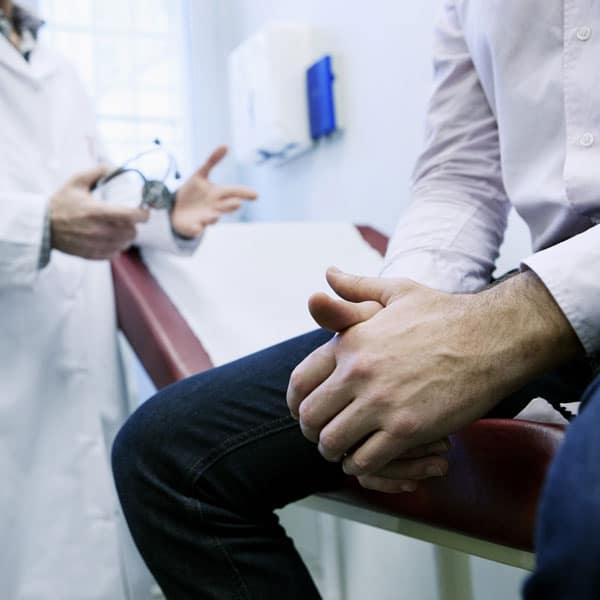Researchers with the American Cancer Society (ACS) have noticed a concerning trend: Rates of colorectal cancer in adults ages 20 to 54 are rising, while those in adults over age 54 are dropping.

“In my own practice, I’ve had patients with colon cancer at unusually early ages, in their 30s and 40s,” says Nathaniel Wolkenfeld, M.D., general surgeon at Summit Healthcare. “I don’t think there’s any consensus as to why it’s happening, but it’s definitely a trend we’ve seen over the last five to 10 years.”
Early Screenings Up for Debate
Dr. Wolkenfeld notes that cancer screening guidelines can change frequently, and not all doctors or insurance companies may follow the ACS’ new recommendation to screen patients earlier. However, he does recommend that patients at high risk for colorectal cancer definitely get screened at age 45 or earlier. Those are generally people who have:
- a personal or family history of colorectal cancer
- a personal history of inflammatory bowel disease, such as ulcerative colitis or Crohn’s disease
- a confirmed or suspected hereditary colorectal cancer syndrome
For people at average risk, Dr. Wolkenfeld recommends sticking with the guideline of having a colonoscopy every 10 years beginning at age 50, as recommended by the American College of Gastroenterology.
Which Test Is Best?
Colorectal cancer screenings fall into two categories. The first, structural or visual exams, include colonoscopies and imaging tests known as CT colonographies (also called virtual colonoscopies). The second group of tests include those that analyze stool samples for cancer: the multi-targeted stool DNA test, fecal immunochemical test, and guaiac-based fecal-occult blood test.
Patients should discuss which test they need with their doctors, but Nathaniel Wolkenfeld, M.D., general surgeon at Summit Healthcare, recommends colonoscopies. These are considered the gold standard for detecting colorectal cancer because they allow doctors to both find and remove cancerous polyps.
“A colonoscopy has always been a very sensitive, specific test,” Dr. Wolkenfeld says. “In addition, if any other screening tests come back positive, the next step is a colonoscopy. It’s the only screening method that can both diagnose and prevent colorectal cancer.”
Other Ways To Decrease Risk
Poor diet, smoking, and lack of physical activity all increase colorectal cancer risk, so healthy lifestyle changes can have a big impact on your long-term health.
“Losing weight is the best place to start, because obesity is linked to colon cancer,” Dr. Wolkenfeld says. “Eating a high-fiber diet and quitting smoking are also important for lowering your risk.”
Both conventional and virtual colonoscopies are available with a Summit Healthcare general surgeon.

